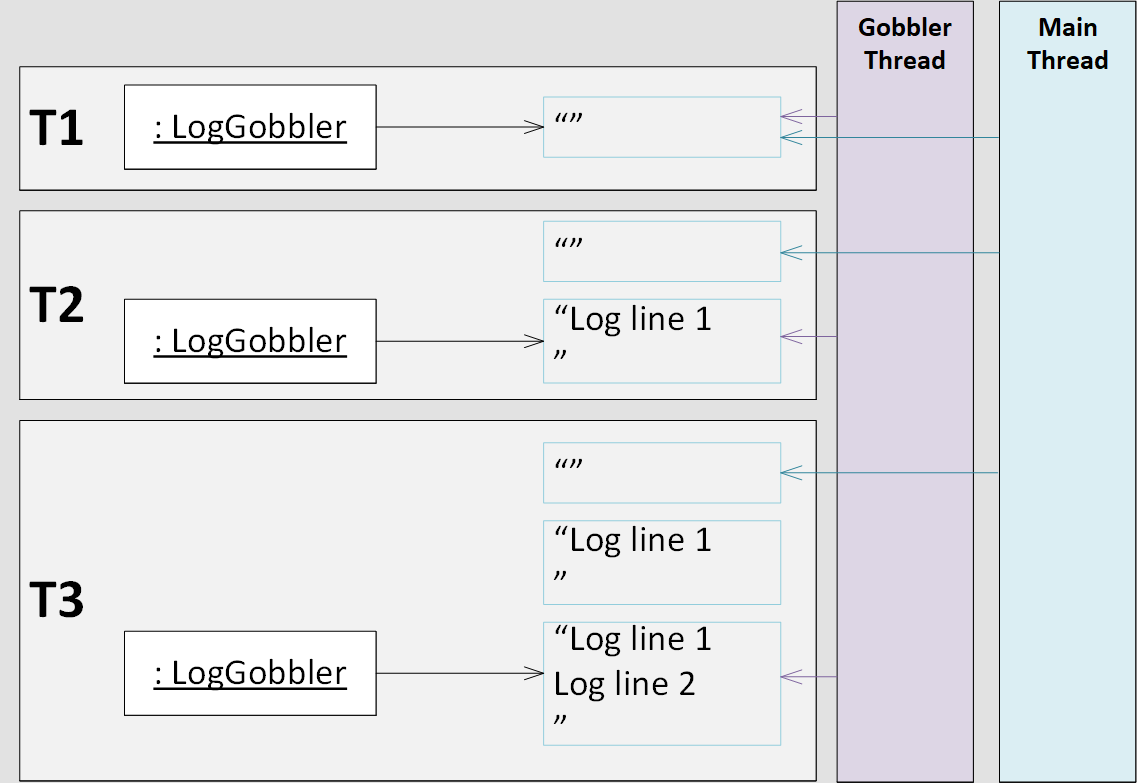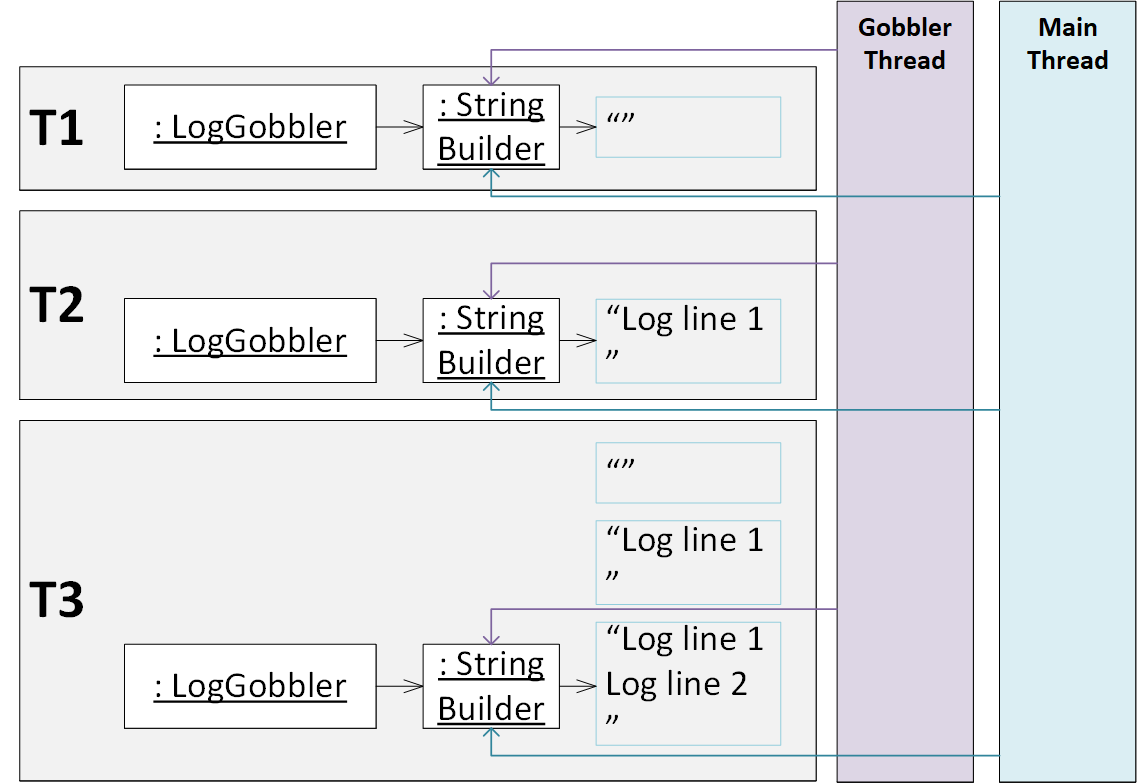Overview
Recently I came across a need to use volatile At the time my
spider senses were tingling; I wasn’t sure. Later, after confirming it
was necessary, we changed the code to remove the need for the keyword. What
follows is the same message, a bit longer.
The Beginning
A team I’ve been coaching was working on code that was multi-threaded. More on that later, but in summary:
- One thread existed to capture log output from an application running in PCF.
- Another thread waited on values in that log first wait to publish a message and then wait for a result.
- The group I was with didn’t write the original solution, so while there are some automated tests, we were back-filling missing tests.
As I looked at the code collecting the log lines, it looked something like the following;
public void track(String logLines) {
this.logs += logLines + '\n';
}
This code is inefficient, to be sure, but when I saw that, and realized that another thread was looking at the collected value, I was pretty certain that we needed something like the following on the field:
private volatile String logs = "";
The reason my spider senses were tingling was because I had read Concurrent Programming in Java back when it was published.
We got the test passing and then “verified” that volatile was
needed by seeing the test fail without it and pass with it.
Time, as usual, to the rescue
Later that evening I realized that the hunch I had was nearly correct.
I was thinking in terms of values rather than refernces. Strings are constant;
their values do not change. in this particular case the issue was a reference
changing versus its value.
The volatile keyword informs java to not assume values
are fixed. The thread waiting for the value, checking it every so often,
got a reference the first time it ran, but never checked the reference
again. The other thread changes the value (and reference) every chance it gets.
Take a look at the following:

At Time 1, the LogGobbler points to an empty string. As the main thread
starts, it picks up that reference, and caches it.
Also at Time 1, the gobbler thread starts and points to the exact same
object (a String in memory.
The main thread checks the log values, waiting for a signal to that it is OK to continue. However, since the thread assumes the underlying value of the field isn’t changing, it keeps checking the original value.
Once logs start flowing, the gobbler thread picks up all the available lines and appends them to its internal field. Since strings are immutable, the code actually creates a new string and sets the field to the new string.
However, at T2, the main thread isn’t paying attention because it is cached. In fact, as the code is written, that’s what will always happen.
At Time 3 and going forward, nothing really changes.
So as written, the code requires volatile
But do it better
String concatenation is inefficient. In this particular case efficiency doesn’t matter. However, in addition to being inefficient, it makes things like threading a bit more of an issue.
Collecting strings in a StringBuilder is a better general solution.
As it turns out, it also resolves the need for the volatile keyword.
Now the field looks like this:
private StringBuilder logs = new StringBuilder();
Since each thread uses the same reference, and also, since that reference
does not change, there’s no need to mark this reference as volatile
This field could be final though I don’t generally use final
Now both threads look at the same object, a StringBuilder, whose reference
never changes, but its internals change as one thread appends logs to it.

Conclusion
I don’t have a conclusion so much as an a-ha. I was pleasantly surprised
that I guessed right for the need to use volatile I wasn’t
exactly on but I was in the right general area.
I was more happy when we improved (and simplified) the implementation
and removed the need for volatile altogether.
 Collected works and current thoughts
Collected works and current thoughts
